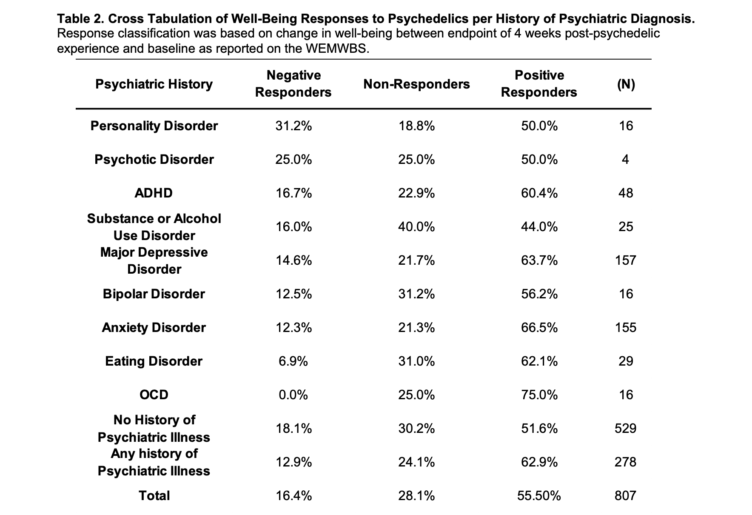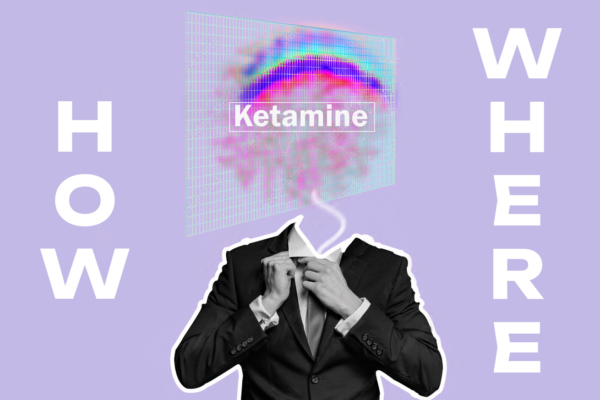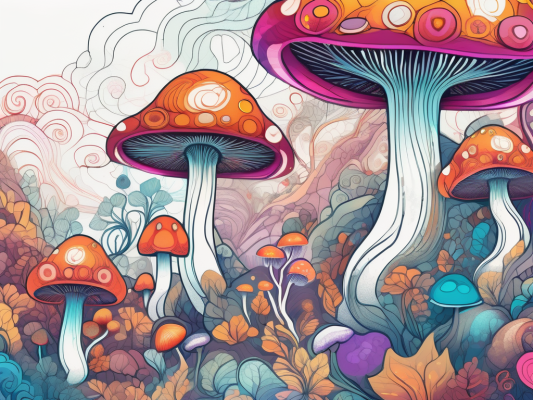
Psychedelics are humanity’s oldest sacrament and newest therapeutic, transforming spirituality and mental health as we know it. Yet, these soul-manifesting compounds are not inherent allies.
This year’s Psychedelic Science Conference and a new Imperial College London paper remind us that psychedelics are as imperfect as humans. Some are downright nasty, while others are capable of godlike transformation. Plant medicine enthusiasts must emphasize these polar truths or risk receding into the shadows.
At Psychedelic Science, journalist Michael Pollan and renowned researcher Bob Jesse warned that advocates must lose a few PR battles for credibility. Constant celebration is disingenuous. Cautionary tales make the movement stronger.
If that’s true, Imperial College London’s psychiatric risk paper is an invaluable start.
Study Findings
Imperial’s team, led by Alessia Marrocu and Robin Carhart-Harris, found that a substantial minority (16%) of psychedelic explorers experienced diminished mental health in the weeks following the journey. Personality disorders put people at even higher risk of psychological harm.
The study utilized real-world, naturalistic data from 807 people across three web-based survey studies. People signed up from social media, online forums, newsletters, and retreat centers. Over a third reported psychiatric disorder histories.
Participants completed at least five surveys assessing psychedelic-induced mood changes, baseline demographics, post-session subjective experiences, and well-being before and after psychedelic use. Four weeks post-journey, those with significant declines in interpersonal relationships, emotions, functioning, the pursuit of pleasure, and self-actualization fell into the adverse outcome group.
In nearly every cohort, including the “healthy normals,” a notable portion responded negatively. However, personality disorder (PD) was the single most significant predictor of mental harm (31.2%), followed by psychotic disorders (25%).
Interestingly, people with OCD reported zero adverse effects and also displayed the highest positive response at 75%.
Overall, about 132 people’s psychological health worsened in the four weeks post-journey.

Controlling for confounding factors, people with personality disorders were four times likelier to experience mental decline than the remaining population. And the true number might be even higher.
More than half of the original 2,008 participants dropped out of the study. Many were from the PD group, indicating the relative risk might be underestimated.
Perspective is Paramount
Placing these numbers in perspective is paramount. The findings did not aim to incite undue fear. Overall, the chances of negative outcomes were low, reinforcing psychedelic safety assertions.
The study aims to illuminate both the benefits and harms of psychedelic therapy.
Critically, it uncovers negative response risks while revealing information about vulnerable populations often excluded from research. The analysis addresses a significant gap in the field today, along with potential solutions.
It argues that combining psychedelics with psychological support is vital for reducing risk, especially for people with personality disorders who may need even more support.
Predicting psychedelic responses is crucial for scientific research, especially as people seek personalized healing. Precision is also paramount to sustaining the psychedelic medicine paradigm as ballot initiatives and legislation spread across the U.S.
We Must All Agree
The study proves that universal psychedelic therapy methods will not suffice, especially for people with specific psychiatric histories. It also proves that legalization, while likely a net positive for humanity, will yield collateral damage. Society must agree to these terms if psychedelics have any hope of staying above ground.
Bob Jesse put it best. He suggested that psychedelic risk acceptance should be analogous to our view of cars. Much like we are not shocked by car accidents, we should not be surprised by adverse psychedelic events. (Bob Jesse, Psychedelic Science Conference, [June 2023]).
![Could This DMT Company Break Through the Addiction Market? [ENTHEON:The Next Big Psychedelic Stock?]](https://psychedelicspotlight.com/wp-content/uploads/2022/06/maxresdefault-45-600x338.jpeg)




